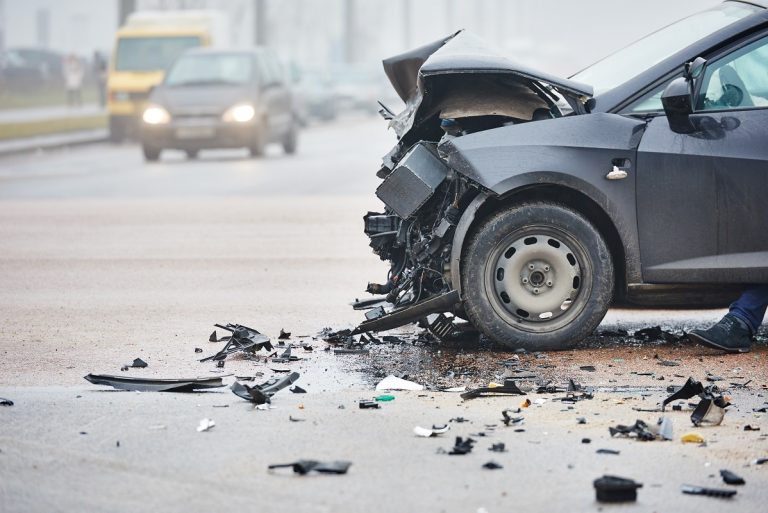- Car accidents are a leading cause of fatalities in the U.S., with laws in place to offer protection.
- Negligence laws hold responsible individuals who contribute to accidents, stressing preventive behavior.
- Seat belts, child restraint, and DWI laws heighten safety, and lawyers can assist when accused wrongfully.
- No-fault and comparative fault laws ensure fair damages and insurance coverage allocation.
- In case of accidents, document the scene, seek medical help, file insurance claims, and consider lawsuits.
Accidents happen daily on the road, making them some of the most common cases that lawyers and insurance companies deal with daily. In the United States, vehicular accidents lead the way in fatalities, with thousands of deaths yearly. Fortunately, laws exist to protect people from these accidents and their consequences. Here’s what you need to know about car accidents, how certain laws protect you from them, and what you can do if you ever get into a car accident.
Car Accidents in The U.S.
According to the National Safety Council, there will be over 35,000 fatalities from car accidents in the U.S. in 2022. The number of lives lost is alarming and has been steadily increasing since 2019. It’s essential to be aware of this issue to protect yourself and your passengers from such a tragedy.
Laws That Protect You From Accidents
Fortunately, some laws protect you from car accidents. Here are some of them:
Negligence Laws
Negligence laws exist to ensure that individuals who cause or contribute to an accident are held accountable. To illustrate, a driver who fails to obey traffic rules or ignores warning signs may be liable for negligence if it leads to an accident. Negligence laws put the burden of preventing accidents on drivers, as they must take reasonable care to avoid causing other people harm.
Seat Belt and Child Restraint Laws

Almost every state in the US has laws to ensure people wear their seat belts while driving. This law is also extended to young children traveling in vehicles. A seat belt law exists to ensure that occupants of a vehicle are protected in an accident. If a person is not wearing a seat belt during an accident, the individual may be held accountable for the resulting injuries from the crash.
DWI Laws
Alcohol consumption is a common factor in vehicular accidents. To ensure that drivers do not cause harm due to alcohol consumption, all states have laws prohibiting drunk driving (DWI). DWI laws protect individuals from reckless and irresponsible drivers who may be under the influence of alcohol or drugs.
However, it’s also important to know that the equipment used to measure alcohol consumption can be faulty. If you’re ever wrongfully accused of DWI, consider contacting a local DWI lawyer who can help you. They can represent you in court and your rights. They can file to get the equipment checked, and if they find that its readings are unreliable, your charges may be dropped.
No-fault Laws
No-fault laws require car owners to have auto insurance that covers medical, disability, lost wages, and other expenses in the event of an accident. It ensures that even if you are at fault for an accident, your insurance company will pay for your damages. No-fault laws exist in some states, while others operate under a fault-based insurance system.
Comparative Fault Laws
Comparative fault laws make it possible to assign blame in proportion to a fault in a vehicular accident. If more than one person is involved in an accident, each may bear some of the fault. The comparative fault law aims to bring equity in the allocation of blame and the payment of damages.
What to Do if You Get in a Car Accident
Lastly, you must know what to do if you ever get into a car accident. Here are four helpful tips:

Documentation
First, you must document the accident as thoroughly as possible. Take pictures of your car, the other vehicle involved, and any debris from the scene. You should also exchange information with the other driver and jot down their license plate number.
Seek Medical Attention
You must seek medical attention if you think you were injured in an accident. Any medical records will be useful when filing a car accident claim.
Insurance Claims
After seeking medical attention, you must file an insurance claim with your provider. You can contact a lawyer to assist you and ensure you get the compensation you deserve.
Lawsuit
If negotiations with insurers don’t work, you may have to take legal action. By working with an experienced lawyer, you can sue the other driver responsible for your damages and losses.
These are just a few of the laws and tips that protect the road from car accidents. It’s essential to stay informed about this issue so that you can protect yourself in case of an emergency. Remember always to drive safely and responsibly to reduce the risk of an accident.






